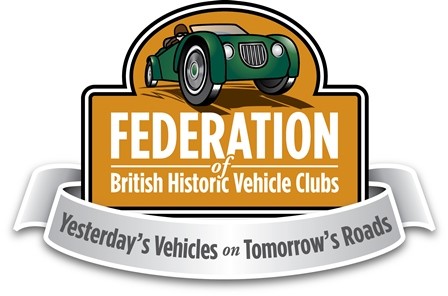FBHVC - Historic Vehicles – The Facts

HISTORIC VEHICLES – THE FACTS
Successfully representing historic vehicle clubs and enthusiasts for 33 years.
Historic Vehicles are formally recognised by the UK Government when they attain an age of 40 years.
The global qualification for a Historic Vehicle is 30 years as defined by the Fédération International des Véhicules Anciens (FIVA). The Federation of British Historic Vehicle Clubs (FBHVC) is the authorised national representative of FIVA.
FBHVC was formed in 1988 and for the past 33 years has protected and maintained the right of UK citizens to use ‘yesterday’s vehicles on tomorrow’s roads’.
FBHVC treats all historic vehicles equally and recognises cars, motorcycles, buses & coaches, lorries & light vans, military, agricultural and steam vehicles.
FBHVC represents over 500 historic vehicle clubs and museums, individual and trade supporters who choose to recognise our work.
Since 1996, FBHVC has recognised the value of consistent research into the historic vehicle movement and uses this data in negotiations with governmental and non-governmental organisations. The latest data was compiled from 15,422 questionnaires completed by historic vehicle owners and enthusiasts relative to vehicles at least 30 years old in 2020, from surveys amongst businesses providing products and services to the sector and an online representative sample of 2,500 adults in 2021.
The Federation maintains a fully data compliant research group who are constantly available for ad hoc research needs.
FBHVC supported by JDA Associates conducts formal research every five years and the latest key facts are:
- 1,538,927 historic vehicles are registered on the DVLA database
- £7.2 billion is the estimated total spend in the historic vehicle sector
- £946 million is the annual value of overseas spending with British firms on historic vehicle products & services
- 683,967 is the estimated number of historic vehicle owners in the UK
- £4,223 per annum Iis the average amount a historic vehicle owner spends on their vehicle
- 1,200 miles per annum is the average distance travelled in historic vehicles
- 16 times per annum is the average number of times a historic vehicle is used each year
- 34,113 is the estimated number of people employed within the historic vehicle sector
- 18.7 million people in the UK see historic vehicles as an important part of our national heritage
- 4.6 million people in Britain would like to own a historic vehicle
- 35% of historic vehicle owners currently contribute or would contribute to a carbon off set scheme
- £17,200 is the average value of a historic vehicle with averages for cars being £26,000, motorcycles
- £6,700 and agricultural tractors £3,500. 51% of vehicles are valued at less than £10,000.
The FBHVC relationship with The Heritage Alliance enables historic vehicles to be represented as an increasing element of our national heritage. Life changed in the twentieth century as individuals gained mobility on two, three, four or more wheels. In addition, industry and agriculture flourished with buses, coaches, lorries and tractors coming into common use.
The FBHVC charity partnership with Childline® provides the perfect opportunity to demonstrate historic vehicles through national Drive It Day whilst providing much needed support to young people. The Federation recognises there are many newer vehicles that attract the term ‘classic’ rather than ‘historic’, these are sought after and valuable but data concerning these vehicles is not included.



Макс Мара — известный итальянского происхождения бренд, специализирующийся на создании высококачественной верхней одежды.
Основанный в начале 50-х, он превратился в эталон элегантности и качественного пошива.
http://testforum.1stbb.ru/viewtopic.php?f=3&t=1287
Иконические пальто бренда покорили сердца модниц по всему миру.
Inuikii — это европейский бренд, известный на функциональной зимней обуви. Он объединяет современный дизайн и высокое качество, создавая удобные модели для холодного времени года. Бренд использует натуральные шерсть и износостойкие материалы, обеспечивая защиту в любую погоду. Inuikii популярен среди городских модников, благодаря уникальному дизайну и практичности.
http://.o.nne.c.t.tn.tu40sarahjohnsonw.estbrookbertrew.e.r40zanele40zel.m.a.hol.m.e.s84.9.83@peterblum.com/releasenotes.aspx?returnurl=http%3A%2F%2Fclassical-news.ru%2Finuikii-stil-teplo-i-elegantnost-v-zimney-obuvi%2F
На этом сайте представлена полезная информация о терапии депрессии, в том числе у пожилых людей.
Здесь можно найти методы диагностики и подходы по улучшению состояния.
http://21st-streetimaginations.com/__media__/js/netsoltrademark.php?d=empathycenter.ru%2Farticles%2Famitriptilin-pri-bolyah%2F
Отдельный раздел уделяется возрастным изменениям и их связи с психическим здоровьем.
Также рассматриваются современные медикаментозные и психологические методы поддержки.
Статьи помогут разобраться, как справляться с угнетенным состоянием в пожилом возрасте.
Сумка для женщины — это не просто вещь , а ключевой аксессуар образа.
Она подчеркивает индивидуальность и дополняет look.
Удобство сумки позволяет держать все важное под рукой.
Хорошая модель говорит о вкусе своей владелицы.
Стильный вид цепляет внимание и поднимает настроение.
Подбор аксессуара — это искусство , отражающее личность женщины.
_________
https://www.forumklassika.ru/showthread.php?t=148772&p=2021752#post2021752
Центр ментального здоровья — это пространство, где заботятся о вашем психике.
Здесь работают профессионалы, готовые поддержать в трудные времена .
Цель центра — укрепить эмоциональное равновесие клиентов.
Услуги включают терапию для решения проблем и тревог .
Это место обеспечивает безопасную среду для развития.
Посещение центра — шаг к гармонии и внутреннему покою.
<a href="http://mus-ecole.maxbb.ru/viewtopic.php?f=14&t=2334">mus-ecole.maxbb.ru</a>